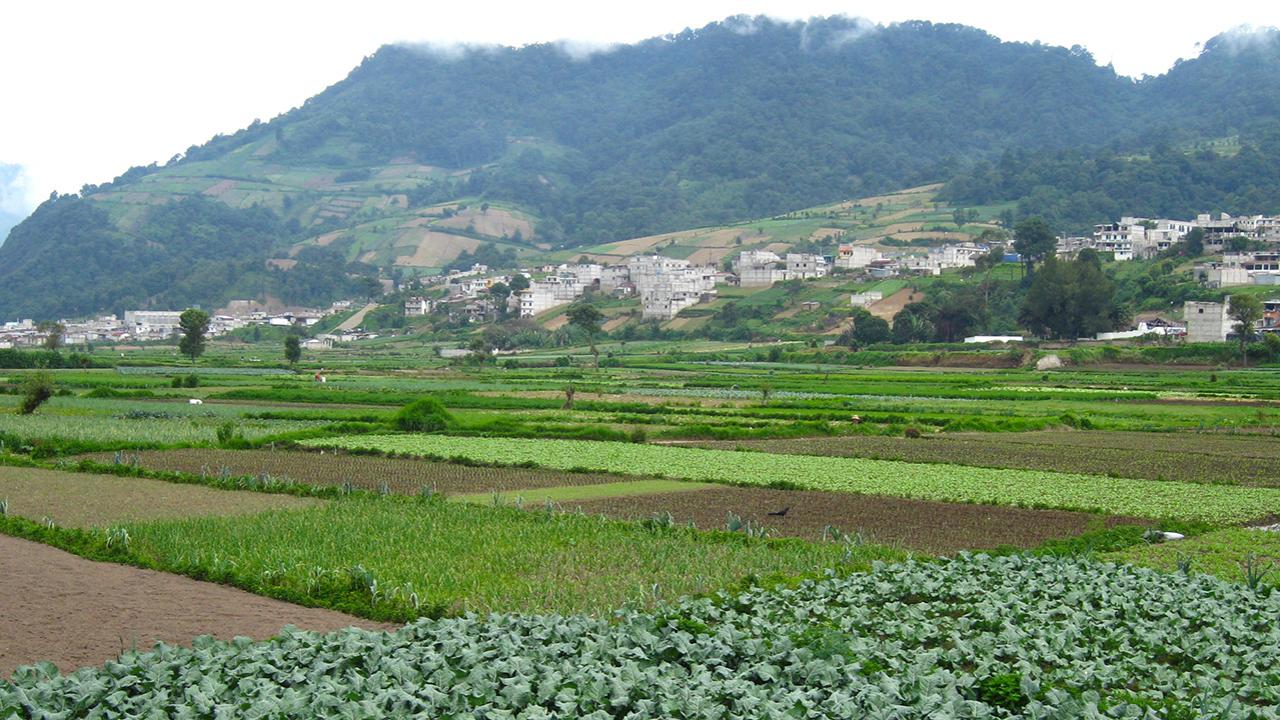
With funding provided by an associate award from USAID’s Bureau for Latin America and the Caribbean (LAC), the Horticulture Innovation Lab recently conducted an assessment of major constraints to continued growth of the horticultural sector in Central America and increased involvement of smallholder growers, based on Honduras and Guatemala.
Read the executive summary (PDF) or the full report: "Advancing Horticulture: Assessment of constraints to horticultural sector growth in Central America" (PDF).
A Spanish-language version is also available: "Promoviendo el Desarrollo de la Horticultura: Evaluación de las limitantes al desarrollo del sector hortícola en Centro América."
Highlights
Here is a preview of the project's findings, including major constraints identified and key recommendations for research, training, and policy initiatives.
Constraints to growth of the horticulture sector and increased participation of smallholders:
- Lack of access to adequate and affordable credit and crop insurance
- Lack of an adequate extension system
- Poor access to high-value markets
- Weather, climate volatility, and climate change
- Pests, diseases, and weeds
- Lack of research addressing regional, national, and local issues of the horticulture sector
- Postharvest losses and food safety
Recommendations: Regional approaches
- Promote initiatives to adapt horticulture to climate volatility through better adapted varieties, protected culture, increased access to irrigation systems, and better weather forecasting.
- Establish regional research programs to address crosscutting constraints affecting the region, particularly new pests and diseases and sustainable production systems.
- Promote regional and national training and education programs on appropriate technologies to reduce postharvest losses and comply with the Food Safety Modernization Act.
- Promote regional initiatives to conserve, characterize, and facilitate access to diverse and improved germplasm of horticultural species.
Recommendations: National approaches
- Reduce the economic risks to horticulture farmers through availability of effective crop insurance programs.
- Design and test an interlinked microcredit-index insurance product.
- Improve national extension systems to ensure research information, best practices, knowledge, and technologies are delivered to smallholder farmers.
- Develop trusts or other microfinance means for financing smallholder farmers, particularly women.
- Develop national policies to support well-funded, long-term national agricultural research systems (NARS), including training of graduate students.
- Develop mechanisms to coordinate and enhance the marketing of horticultural products from smallholder growers.
- Create incentives and an enabling environment to develop horticulture-oriented business services.
- Develop policies to facilitate the participation of indigenous peoples, smallholders and women in value chains.
Additional background
This assessment is part of USAID’s Feed the Future strategy to emphasize the opportunities that horticultural crops provide for low-income smallholder farmers, especially women, in escaping the cycle of subsistence agriculture and poverty.
The project is informed by consultations with horticultural industry stakeholders and in-country agricultural research institutions, in-person interviews, workshops and online surveys.
Read the project implementation plan for more details.
Project rationale
Since the mid-1980s, USAID has made significant investments in the Latin America and Caribbean (LAC) region to develop non-traditional agricultural export industries, including investments in production, postharvest handling, value-added processing and marketing of higher-value horticultural crops. As a consequence, export of these higher-value crops and valued-added products has generated foreign exchange and contributed to GDP growth, while providing farmers and other agricultural enterprises with a greater opportunity for job creation and income generation.
More recently, USAID assistance to Guatemala and Honduras has focused its Feed the Future investments on helping small-scale producers (farms and firms) raise their incomes through adoption of improved technologies for growing, postharvest handling, processing, and marketing horticultural crops.
For small-scale producers, being able to use improved technologies depends not only on the right technologies being available, but also on producers’ access and knowledge of how to use these technologies. Availability of technologies in a particular country will depend on whether that country (or its surrounding region) has a technology generation and transfer system that is focused on carrying out horticultural research to address constraints of the horticultural sector. In turn, the ability of small-scale producers to adopt and successfully apply improved horticultural technologies will depend on the overall enabling environment for investment in, production of, and trading of horticultural crops.
With the proliferation of free-trade agreements between several Latin American countries and the United States, there is an urgent need to develop sustainable cropping systems, increase production, improve postharvest handling, increase value-added processing, and facilitate marketing of horticultural crops. Addressing these needs will increase competitiveness of the targeted countries, in local and international arenas.
However, to achieve growth and competitiveness of the horticultural industries, near-term investment will be needed in two areas:
- a technology generation and transfer system that is effective in providing improved technologies that address local constraints to more productive, profitable and sustainable production of horticultural crops; and
- an institutional support system that facilitates provision of inputs and services that producers need for delivering quality produce and products that meet both market demands and regulatory standards.
González A.M., Zúniga, T.L., and L.G. Wilson. 2013. Advancing Horticulture: Assessment of constraints to horticultural sector growth in Central America. U.S. Agency for International Development report prepared by Horticulture Innovation Lab.

